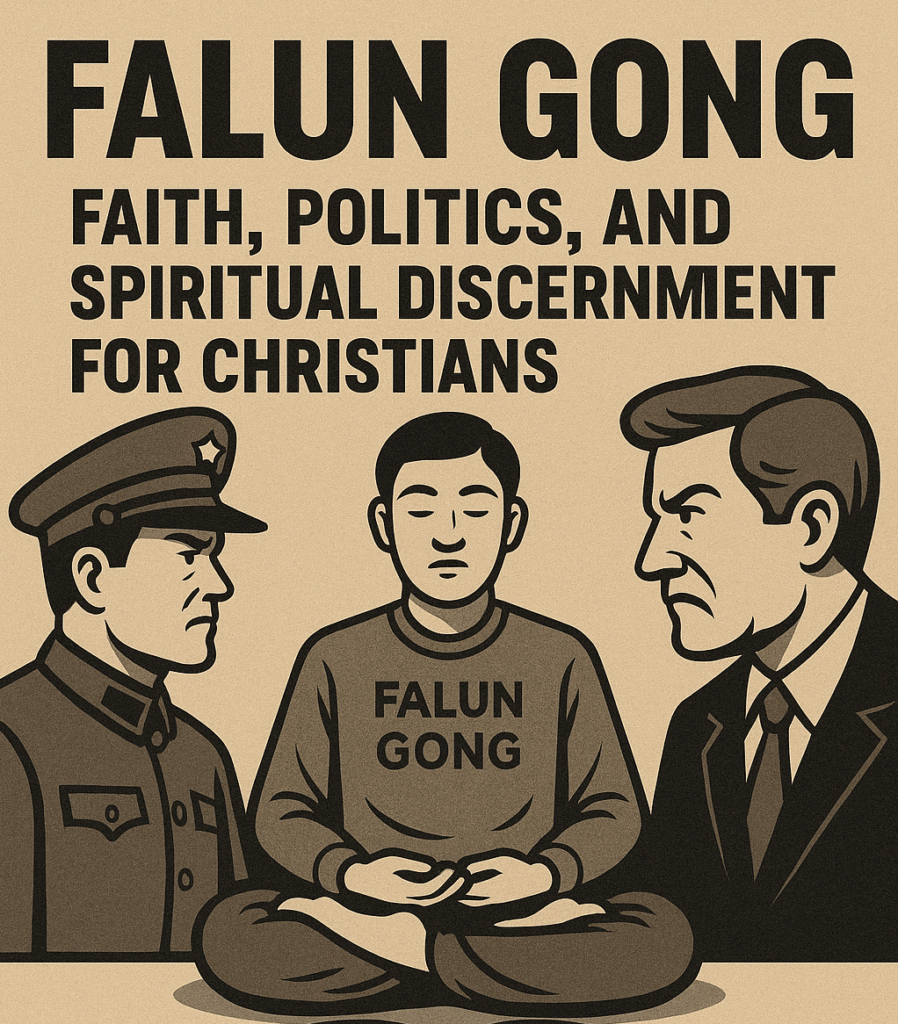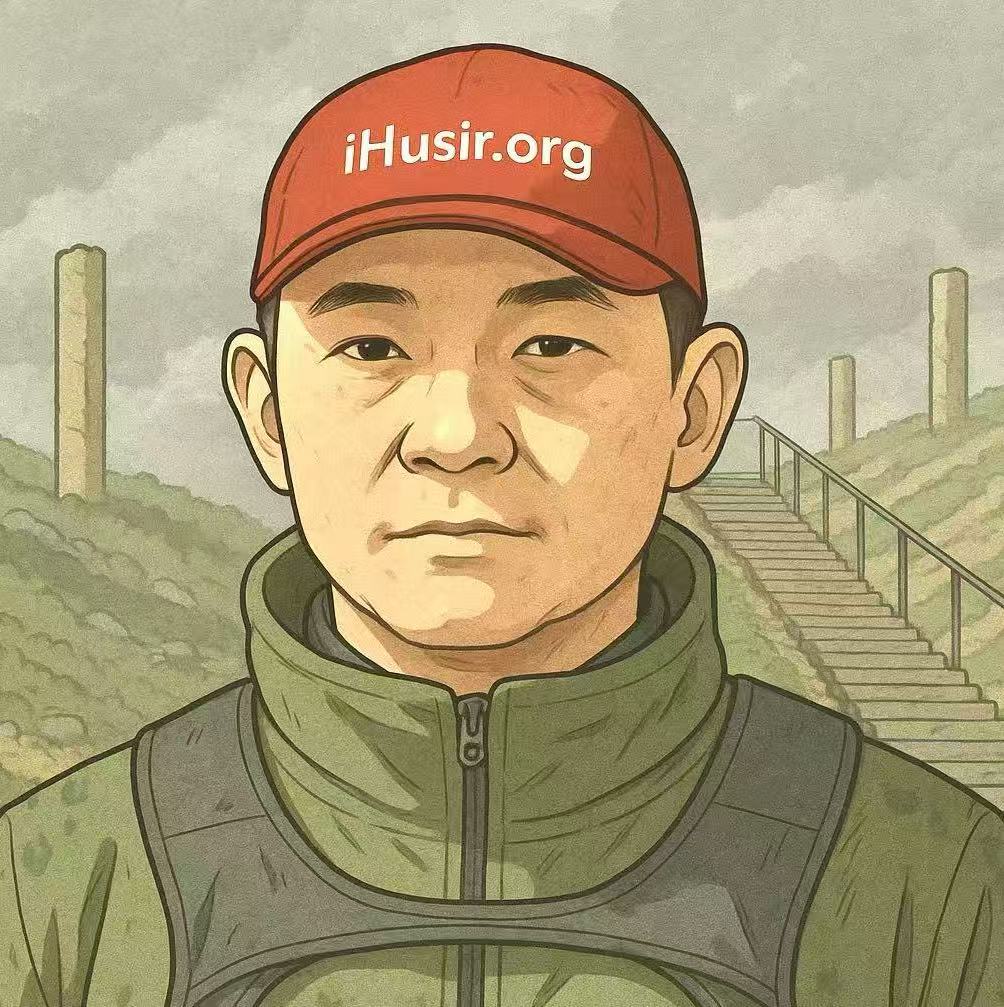——从民主国家与中共立场分别分析其本质与问题文
文 / MingSir
引言:一个矛盾的现象
法轮功表面上是一种“信仰修炼团体”,但在现实中却高度政治化,自成立后不久便开始了长期与中共的政权对抗,并在美国和全球多地设立媒体、艺术团体、人权组织,开展强烈的“反共运动”。许多人因此困惑:它到底是宗教?是政治组织?是异端?还是人权受害者?
我们不妨站在民主国家与中共体制这两个完全不同的立场上,分别分析法轮功所扮演的角色,然后回到基督徒的属灵立场上,做出清晰分辨。

一、站在民主国家立场:保护其自由,但质疑其做法
在美国宪法第一修正案精神下:无论法轮功教义是否被多数人接受,只要它不违宪、不暴力、不胁迫他人信仰,就有存在与传播的权利。
在美国、加拿大、德国等民主国家,法轮功被视为合法的信仰团体,受到宪法保障。政府普遍认为,法轮功信徒有宗教与言论自由,传说中的中国政府对其的镇压(包括监禁、酷刑、活摘器官)构成严重人权侵害。美国国会、国务院等多次通过议案谴责中共,并接见法轮功代表表达支持。
此外,法轮功也被广泛列入国际人权报告中,成为“中国宗教迫害”的代表性案例之一。然而,它在海外设立的大纪元时报、新唐人电视台、神韵艺术团等媒体平台,长期呈现高度政治化倾向,尤其近年来大量亲川普、反疫苗、宣扬阴谋论等内容,引发主流社会和媒体的质疑与疏远。
因此,虽然民主国家保护其生存与言论空间,但对其在信息操控、政治煽动方面的做法,抱持一定程度的怀疑与距离。
二、站在中共体制立场:全盘否定并残酷打压
1999年起,中共正式将法轮功定性为“邪教”,全面封禁其一切活动。国际上对邪教组织定性的要点描述有精神控制、对领袖的绝对崇拜、排他性真理观、强烈的末世论恐吓、隔绝外界强烈控制信息来源、敌视外部社会与家庭、财产和时间及行为上的高度控制等。从其表现来看,法轮功有着明显的“新兴邪教”特征。
法轮功创始人李洪志被列为非法人物,其学员遭受广泛抓捕、强制转化、监禁,甚至有传说中的活摘器官等残酷迫害。中共通过舆论工具对法轮功进行长期妖魔化,将其描述为扰乱社会秩序、迷信歇斯底里的群体。
中共的镇压使法轮功信徒从受害者转变为政治斗争者,激发其更强烈的“反共使命感”。这种高压打压策略,不仅未能让法轮功在思想上瓦解,反而促成其在海外重塑为“人权正义符号”。
从中共体制角度,法轮功是挑战意识形态控制的“异端”,但它的严酷压制手段却反过来助推了法轮功在国际社会中的“道德正义形象”。

三、从基督徒角度的属灵分辨:警觉、怜悯、分开
首先,必须明确一点:从基督信仰出发,法轮功的教义是异端,甚至接近邪教。
在神学上,法轮功否认唯一真神,崇拜创始人李洪志为“宇宙主佛”,其教义建立在轮回、业力、自我修炼和“圆满”理论上,与圣经中“因信称义、十字架救恩”的核心真理彻底背离。它将人救赎的责任完全归于“个人苦修”,是一种典型的“行为主义式宗教”,混合了东方神秘主义与伪科学。
其次,在属灵行为上,法轮功将政治斗争视为信仰实践的一部分,其教义中甚至将“反中共”视作修炼的重要环节。大量政治宣传、演出与媒体战,成为其修炼者的“护法”方式。这种“宗教政治化”模式,不仅模糊了信仰的本质,也严重干扰了公共舆论与国际传播的理性判断。
基督徒必须对此保持清醒认知:法轮功的政治斗争不等于真理的见证,它的教义本质不能混同于基督教的属灵追求。
四、我们的信仰回应:不认同,不仇视,不沉默
面对法轮功这个高度政治化、属灵混乱的团体,基督徒应持三重立场:
第一,在人权上,我们反对中共政府对法轮功信徒的迫害与酷刑,维护每一个人的基本尊严;第二,在信仰上,我们要坚决分辨其为异端,不参与、不宣传、不模糊边界;第三,在爱心上,我们不带仇恨地对待法轮功信徒,而是把他们看作属灵上迷失的人,以怜悯与真理回应之,引导他们脱离“行为主义宗教”与“政治神化”,归回基督的恩典之路。
结语:仇恨不能带来自由,信仰不该被政治劫持
法轮功的政治激进与属灵扭曲,是这个时代人心迷失的一个缩影。作为基督徒,我们的使命不是卷入政治纷争,而是在真理中持守怜悯,用十字架的福音呼唤被困的灵魂。
我们不是站在中共,也不是站在法轮功,我们站在那位“为罪人钉十字架的基督”这一边。因为,唯有基督才是人的救主,世界的盼望。愿每个弟兄姐妹积极悔改,回转向神,活出自由积极的人生。
Falun Gong: Faith, Politics, and Spiritual Discernment for Christians
— Analyzing Its Nature from the Standpoints of Democratic Nations and the Chinese Communist Regime
By MingSir
Introduction: A Paradoxical PhenomenonFalun Gong appears on the surface to be a “spiritual cultivation group,” but in reality, it has become highly politicized. Shortly after its founding, it began a long-standing confrontation with the Chinese Communist regime, and has since established media outlets, artistic organizations, and human rights advocacy platforms around the world, especially in the U.S., to conduct a vigorous “anti-communist movement.” This leads many to wonder: Is it a religion? A political organization? A cult? Or merely a persecuted group of victims?
To gain clarity, let us examine Falun Gong from both the standpoint of democratic nations and the Chinese authoritarian system, and then return to the Christian spiritual lens to discern its true nature.

I. From the Perspective of Democratic Nations: Protected Freedom, but Questionable Practice
Under the First Amendment of the U.S. Constitution, any belief system that is nonviolent, non-coercive, and constitutionally compliant has the right to exist and spread, regardless of whether its doctrines are popular. In countries like the U.S., Canada, and Germany, Falun Gong is regarded as a legitimate belief group protected under freedom of religion and speech.
Governments in these nations believe that the Chinese Communist Party’s suppression of Falun Gong—including detention, torture, and alleged forced organ harvesting—constitutes serious human rights violations. U.S. Congress and the State Department have passed resolutions condemning China and have hosted Falun Gong representatives to show public support.
Falun Gong is regularly included in international human rights reports as a symbol of China’s religious persecution. However, the group’s overseas institutions—including The Epoch Times, New Tang Dynasty TV, and Shen Yun Performing Arts—have grown increasingly politicized. In recent years, they have been associated with pro-Trump messaging, anti-vaccine rhetoric, and conspiracy theories, leading to growing skepticism and distancing from mainstream Western media.
Thus, while democratic nations uphold Falun Gong’s right to exist and speak freely, they remain cautious about its political manipulation and information strategies.
II. From the Perspective of the Chinese Communist Regime: Total Rejection and Brutal Suppression
Since 1999, the CCP has officially labeled Falun Gong a “cult” and banned all its activities. Internationally, cults are often identified by patterns such as: psychological control, absolute reverence for the leader, exclusive claims to truth, apocalyptic warnings, isolation from outside information, and intense behavioral and financial control. Falun Gong exhibits many of these characteristics of a “new religious cult.”
Founder Li Hongzhi has been declared a criminal in China, and followers have faced mass arrests, forced “reeducation,” and imprisonment, with credible allegations of forced organ harvesting. The CCP has engaged in a long campaign of demonization, portraying Falun Gong as irrational, anti-science, and socially destabilizing.
This persecution transformed Falun Gong followers from victims into political fighters, intensifying their “anti-communist mission.” Ironically, the regime’s harsh suppression has helped Falun Gong rebrand itself internationally as a “symbol of justice and resistance.”
From the CCP’s standpoint, Falun Gong is an ideological threat and deviant force. Yet its brutal suppression has only fueled Falun Gong’s growth in global moral influence.

III. From a Christian Perspective: Spiritual Discernment Requires Vigilance, Compassion, and Separation
First and foremost, from a biblical standpoint, Falun Gong is heretical—and in many ways, cultic. Theologically, Falun Gong denies the one true God, deifies its founder Li Hongzhi as a cosmic being, and teaches doctrines centered on reincarnation, karma elimination, personal cultivation, and eventual “consummation.” This directly contradicts the core biblical truth of salvation by grace through faith in Jesus Christ, and shifts the burden of redemption to individual moral effort.
It is a classic works-based religion, mingling Eastern mysticism with pseudoscience.
Secondly, in practice, Falun Gong has fused its belief system with political warfare. Political resistance—especially anti-communism—is treated as an essential aspect of spiritual practice. Its media campaigns, theatrical performances, and public activism are all regarded as part of “safeguarding the Fa.” This politicization of religion not only blurs the nature of faith but also undermines reasoned public discourse.
Christians must be spiritually sober in this regard: Falun Gong’s political fight is not a testimony of truth. Its theological foundation and spiritual orientation are fundamentally incompatible with the gospel of Christ.
IV. The Christian Response: Do Not Endorse, Do Not Hate, Do Not Remain Silent
As Christians facing a group that is both politically radical and spiritually confused, we must hold three distinct positions:
First, in terms of human rights, we oppose the Chinese government’s persecution and torture of Falun Gong practitioners and affirm the dignity of every human being.
Second, in terms of faith, we must clearly identify Falun Gong as a false doctrine. We do not support, promote, or blur the lines between the gospel and its teachings.
Third, in terms of love, we do not treat Falun Gong followers with hostility. We view them as spiritually lost souls and respond with truth and compassion—calling them out of works-based religion and political mysticism, and toward the grace of Christ.
Conclusion: Hatred Cannot Lead to Freedom, and Faith Should Never Be Hijacked by Politics
Falun Gong’s political extremism and theological distortion reflect a broader spiritual crisis of our age. As Christians, our calling is not to be swept into ideological battles but to remain grounded in the truth—offering compassion through the cross of Christ to all who are deceived.
We do not stand with the CCP, nor do we stand with Falun Gong. We stand with Christ crucified—for He alone is the Savior of all humanity and the hope of the world. May every believer repent, return to God, and live a life of true freedom.
请填写您的邮箱,免费订阅作者最新文章。

发表回复